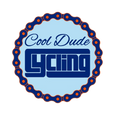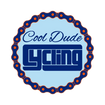Recovery is a critical aspect of any cyclist's training regimen, yet it often doesn't receive the attention it deserves. Whether you're a seasoned pro or just starting in the world of cycling, understanding and implementing effective recovery strategies can make a significant difference in your performance and overall well-being. In this article, we'll explore recovery tips from professional cyclists, including insights from their routines and the use of various tools and supplements.
Prioritizing Recovery
Recovery is often an underestimated component of a cyclist's training regimen, but it's undeniably one of the most influential factors in enhancing performance and reducing the risk of injuries. It's not just about post-ride relaxation; recovery should be a proactive strategy that cyclists actively engage in.
Think of recovery as the phase where your body undergoes transformation. After those grueling training sessions or challenging rides, it's during recovery that your muscles rebuild and become stronger. Without adequate recovery, your body can't adapt to the demands you place on it. So, it's not just time off the bike; it's a vital part of the training process.
While it might be tempting to lounge on the couch after a long ride, consider incorporating active recovery into your routine. Active recovery involves low-intensity exercises like easy rides or leisurely walks. These activities help increase blood circulation, reduce inflammation, and alleviate muscle soreness. They're essential for preparing your body for the next training session.
Active recovery is like a bridge connecting hard training sessions. It helps maintain consistency in your training by preventing excessive fatigue. By embracing active recovery, you'll find that your challenging training sessions become more manageable, and the risk of overtraining decreases significantly.
Hydration and Electrolytes
Staying well-hydrated is a fundamental aspect of recovery for cyclists. It's not just about sipping water during your ride; it's about understanding your body's hydration needs and ensuring you replace lost fluids and electrolytes effectively.
Cycling, especially in warm weather, can lead to significant fluid loss through sweat. Dehydration can impair your performance and make recovery more challenging. That's why it's crucial to prioritize hydration during and after your ride. It's not just about quenching your thirst; it's about maintaining a fluid balance that supports your body's recovery processes.
A simple but effective strategy to gauge your hydration status is to weigh yourself before and after your rides. The weight difference is a rough estimate of the fluids lost during the ride. Rehydrate by consuming fluids and electrolytes to replenish the lost weight. This practice optimizes your hydration and prepares your body for the next ride
Remember, when it's scorching outside, you might need to adjust your training or riding schedule to avoid extreme heat, or consider shorter but more frequent rides to minimize the risk of dehydration. By paying attention to hydration, you'll not only enhance your recovery but also boost your overall cycling performance.
Protein Supplementation
Protein is a crucial element in the recovery process for cyclists. After an intense ride or workout, your muscles need adequate protein to repair and grow stronger. While it's essential to consume a well-balanced meal post-ride, protein supplementation can offer several advantages.
Immediately after your ride, your muscles are in a prime state to absorb nutrients. This is the ideal time to provide them with the building blocks they need, and that's where protein comes into play. Clean athlete protein supplements are recommended because they are free from banned substances, ensuring that your recovery is not compromised by any prohibited ingredients.
Protein supplements are easily digestible and rapidly absorbed by your muscles. This efficiency accelerates the recovery process, helping you bounce back faster from fatigue and muscle damage. It's like a direct infusion of recovery fuel to your body.
While protein supplementation is beneficial, it should complement a well-balanced diet rich in lean protein sources like chicken, fish, tofu, or legumes. Combining both dietary and supplemental protein can optimize your recovery and overall performance.
Muscle Recovery Techniques
Muscle recovery techniques are essential to alleviate soreness, tension, and fatigue that can linger after challenging rides. These techniques go beyond post-ride relaxation and actively target specific muscle groups, enhancing your overall recovery experience.
Massage guns, like the Hypervolt, have become popular tools in a cyclist's recovery arsenal. These devices deliver targeted deep tissue massage, helping to release muscle knots and reduce tension. Using a massage gun on areas such as the glutes, hamstrings, and calves can significantly enhance recovery, especially after intense rides or gym sessions. It's like having a personal masseuse at your disposal.
Normatec boots offer a unique recovery experience. They provide a constant and rhythmic compression massage to your legs, simulating the sensation of someone massaging your achy muscles. This helps flush out metabolic waste and reduces inflammation, leaving your legs feeling refreshed and ready for the next ride. While Normatec boots may not be accessible to everyone, they can be a valuable addition for those seeking an advanced recovery tool.
Incorporating these muscle recovery techniques into your post-ride routine can significantly reduce muscle soreness, improve flexibility, and prepare your body for your next cycling endeavor. By targeting specific muscle groups, you'll ensure that every ride feels like a fresh start, promoting consistency and longevity in your cycling journey.
Immune System and Overall Health
Maintaining a robust immune system and overall health is paramount for cyclists. Intense training can temporarily weaken your immune system, making you susceptible to illnesses and slowing down recovery. Here are some strategies to bolster your immunity and well-being.
Vitamin D plays a vital role in immune function and bone health. Especially during the winter months when sunlight exposure is limited, consider supplementing with vitamin D to support your immune system. A well-rounded multivitamin can fill in nutritional gaps in your diet, ensuring that your body receives essential vitamins and minerals necessary for overall health.
For athletes, maintaining adequate iron levels is crucial as iron deficiency can lead to fatigue and reduced performance. Consult with a healthcare provider to determine if iron supplementation is necessary.
Fuel your body with a balanced diet rich in fruits, vegetables, lean proteins, and whole grains. A nutritious diet provides the necessary nutrients for recovery and immune support. Prioritize sleep as it is the number one recovery method. Ensure you get enough quality sleep, especially during intense training periods.
High stress levels can negatively impact your immune system. Incorporate stress management techniques such as meditation, yoga, or mindfulness into your routine. By taking steps to fortify your immune system and maintain overall health, you'll be better equipped to handle the physical demands of cycling and recover more effectively.
Personalized Recovery
One size does not fit all when it comes to recovery. What works for one cyclist may not work as effectively for another. Your recovery routine should be personalized and tailored to your specific needs and preferences.
Don't be afraid to try different recovery methods to see what resonates with your body. It might take some trial and error to identify the techniques and tools that provide the most benefit.
Adapt and Evolve: As your training intensity, goals, and physical condition change, be willing to adapt your recovery routine accordingly. What worked in the past may not be the best fit for your current needs.
Recovery should not be an afterthought in your cycling journey; it should be a priority. As highlighted by professional cyclists and their recovery routines, there are various strategies and tools available to help you recover effectively. From active recovery to proper hydration, protein supplementation, muscle recovery techniques, and immune system support, these tips can significantly enhance your performance and well-being on the bike. Remember that recovery is a personalized journey, so take the time to discover what works best for you and keep fine-tuning your routine to achieve your cycling goals.











